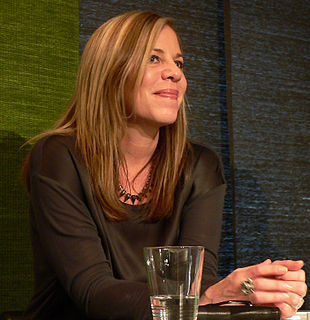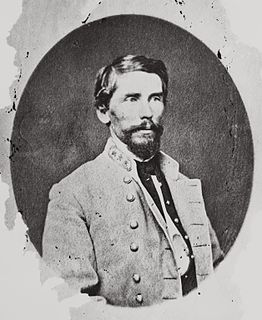A Quote by Jurnee Smollett
One of the most tragic things about slavery was the mental enslavement, the way they made us believe that we were worth nothing; and that's what she's fighting against.
Related Quotes
Everything just feels so empty without her. She was more a parent to me than my birth parents were. She took me in, fed, dressed me, but most importantly, she treated me with respect. She taught me that my abilities were nothing to be ashamed of, nothing I should try so hard to deny. She convinced me that what I had was a gift-not a curse- and that I shouldn't let other people's narrow minds and fears determine how I love, what I do, or how I perceive myself in the world. She actually made me believe that in no way, shape, or form did their uninformed opinions make me a freak.
Because I believe a lot of people share my feelings about the tragic landscape of highway strips, parking lots, housing tracts, mega-malls, junked cities, and ravaged countryside that makes up the everyday environment where most Americans live and work. A land full of places that are not worth caring about will soon be a nation and a way of life that is not worth defending.
It is said slavery is all we are fighting for, and if we give it up we give up all. Even if this were true, which we deny, slavery is not all our enemies are fighting for. It is merely the pretense to establish sectional superiority and a more centralized form of government, and to deprive us of our rights and liberties.
Oh, Black known and unknown poets, how often have your auctioned pains sustained us? Who will compute the lonely nights made less lonely by your songs, or by the empty pots made less tragic by your tales? If we were a people much given to revealing secrets, we might raise monuments and sacrifice to the memories of our poets, but slavery cured us of that weakness.
One of the key things for me about Madame Walker's life is that she really does represent this first generation out of slavery when black people were reinventing themselves, and as a woman who was the first child in her family born free, she was trying to figure out a way, and she moved from Delta, Louisiana.
The aggressive incoherence of our common surroundings can be described as entropy made visible. The way we have disposed things on the landscape leads us in the direction of disorder and death. They are categorically evil. These dispositions are destroying our only home-planet and other organisms that share it. They defeat our need to care about where we are and the things in place there. They prompt us to feel that civilization is not worth carrying on. They rob us of our identity and our will to live. These things are not about personal taste or style.
Philiosophers like Hume and Descartes and Hobbes saw things similarly. They thought that mental images and ideas were actually the same thing. There are those today that dispute that, and lots of debates about how the mind works, but for me it's simple: Mental images, for most of us, are central in inventive and creative thinking.
There are some really great books that have been written about slavery, but I don't think that the discourse about it in society has been very accurate or healthy. I don't think we've come up with ways to tell it that don't insult people or hit them in the wrong way. Part of the problem is that most people don't really understand what slavery was anyway. Most white people didn't own slaves. Slavery was a way of life, just like driving cars is a way of life now. It doesn't mean that it was right.
Laughter is the best way to get over something or get closer to something. It's one of the things I respect most about Amy Schumer. She's found a way to get us closer to ourselves and see the ugly side of humanity, but not in a way that's pointing a finger or that's angry. She does it in a way that makes us see the absurdity and laugh at it.
She was looking into my eyes with that way she had of looking that made you wonder whether she really saw out of her own eyes. They would look on and on after every one else's eyes in the world would have stopped looking. She looked as though there were nothing on earth she would not look at like that, and really she was afraid of so many things.
God doesn't like lesbians," Grandma Huberman hised, throwing the magazine in the trash. Jennifer knew what lesbian meant, and she knew she probably was one. But she couldn't understand why God would hold that against her or against Monica Mathers, who'd never started a war or killed anybody, and whose deadeye three-pointers were straight-up amazing. After all, hadn't God made both of them? But people were like that, she'd noticed. They'd invoke Godly privilege at the weirdest of times and for the most stupid reasons.



































